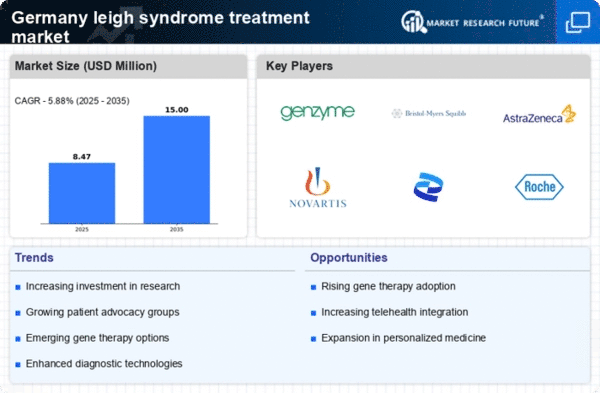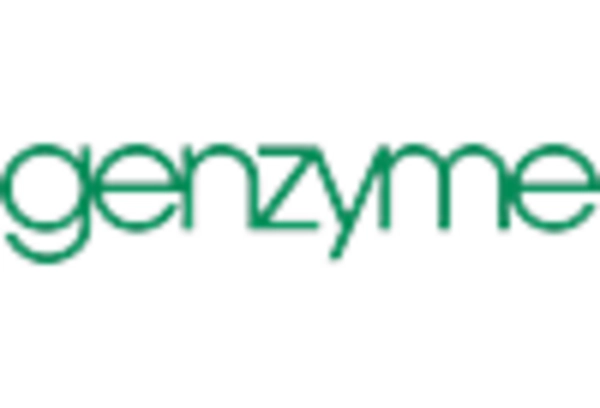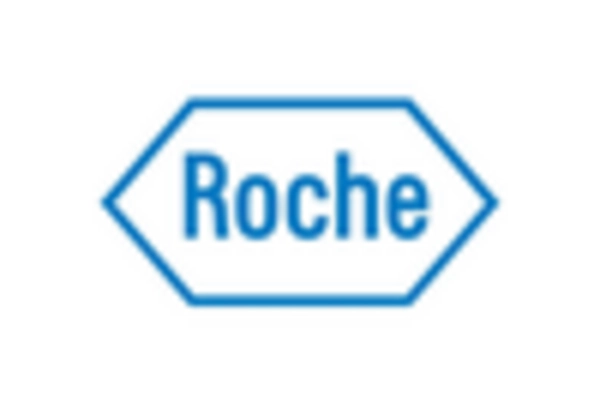Increased Awareness and Advocacy
The growing awareness and advocacy for Leigh syndrome in Germany are pivotal drivers for the leigh syndrome-treatment market. Patient advocacy groups and non-profit organizations are actively working to educate the public and healthcare professionals about the condition. This heightened awareness is likely to lead to earlier diagnoses and increased demand for effective treatments. Additionally, advocacy efforts may influence policy changes that support funding for research and treatment options. As more individuals become informed about Leigh syndrome, the market is expected to see a rise in patient engagement and participation in clinical trials. This trend could ultimately enhance the development of new therapies and improve access to existing treatments within the leigh syndrome-treatment market.
Regulatory Framework Enhancements
The regulatory environment in Germany is evolving to better support the leigh syndrome-treatment market. Recent initiatives aimed at streamlining the approval process for innovative therapies are likely to facilitate quicker access to new treatments for patients. Regulatory bodies are increasingly recognizing the need for expedited pathways for rare diseases, which may lead to a more favorable landscape for drug development. As a result, pharmaceutical companies may be more inclined to invest in research and development for Leigh syndrome treatments. This regulatory support could enhance the availability of effective therapies, ultimately benefiting patients and their families. The leigh syndrome treatment market is expected to grow as these regulatory enhancements create a more conducive environment for innovation.
Rising Prevalence of Leigh Syndrome
The increasing incidence of Leigh syndrome in Germany is a critical driver for the leigh syndrome treatment market. Recent estimates suggest that the prevalence of this rare mitochondrial disorder is approximately 1 in 40,000 live births. This rising prevalence necessitates the development and availability of effective treatment options, thereby stimulating market growth. As awareness of Leigh syndrome grows among healthcare professionals and the general public, the demand for specialized treatments is likely to increase. Furthermore, the growing number of diagnosed cases may lead to enhanced funding for research and development initiatives aimed at discovering novel therapies. Consequently, the leigh syndrome-treatment market is expected to expand as healthcare providers seek to address the needs of affected patients and their families.
Advancements in Diagnostic Technologies
Technological advancements in diagnostic tools are significantly impacting the leigh syndrome-treatment market. Enhanced genetic testing methods, such as next-generation sequencing, have improved the accuracy and speed of diagnosing Leigh syndrome. These innovations enable earlier detection, which is crucial for timely intervention and treatment. As diagnostic capabilities improve, more patients are likely to be identified, leading to an increased demand for targeted therapies. In Germany, the integration of advanced diagnostic technologies into clinical practice is expected to facilitate better patient outcomes and drive market growth. Moreover, the availability of precise diagnostic tools may encourage healthcare providers to adopt more personalized treatment approaches, further propelling the leigh syndrome-treatment market.
Growing Investment in Rare Disease Research
The leigh syndrome-treatment market is experiencing growth due to increased investment in research focused on rare diseases. In Germany, both public and private sectors are recognizing the importance of addressing rare conditions like Leigh syndrome. Funding initiatives, such as grants and partnerships with pharmaceutical companies, are becoming more prevalent. This financial support is crucial for advancing research and development of innovative therapies. As a result, the leigh syndrome-treatment market is likely to benefit from the emergence of new treatment options that could improve patient outcomes. Furthermore, the commitment to rare disease research may foster collaboration among stakeholders, including academic institutions, biotech firms, and healthcare providers, thereby enhancing the overall landscape of treatment availability.
















